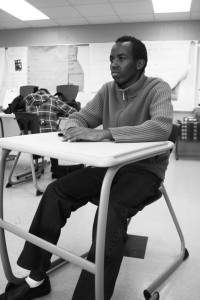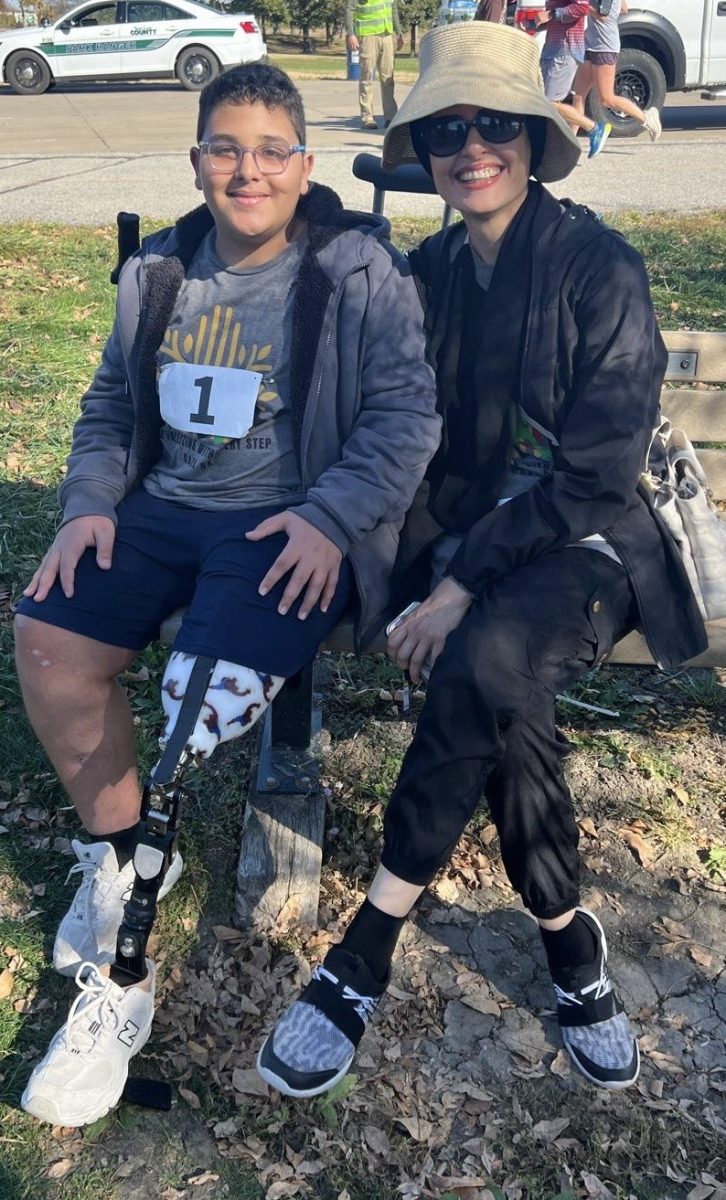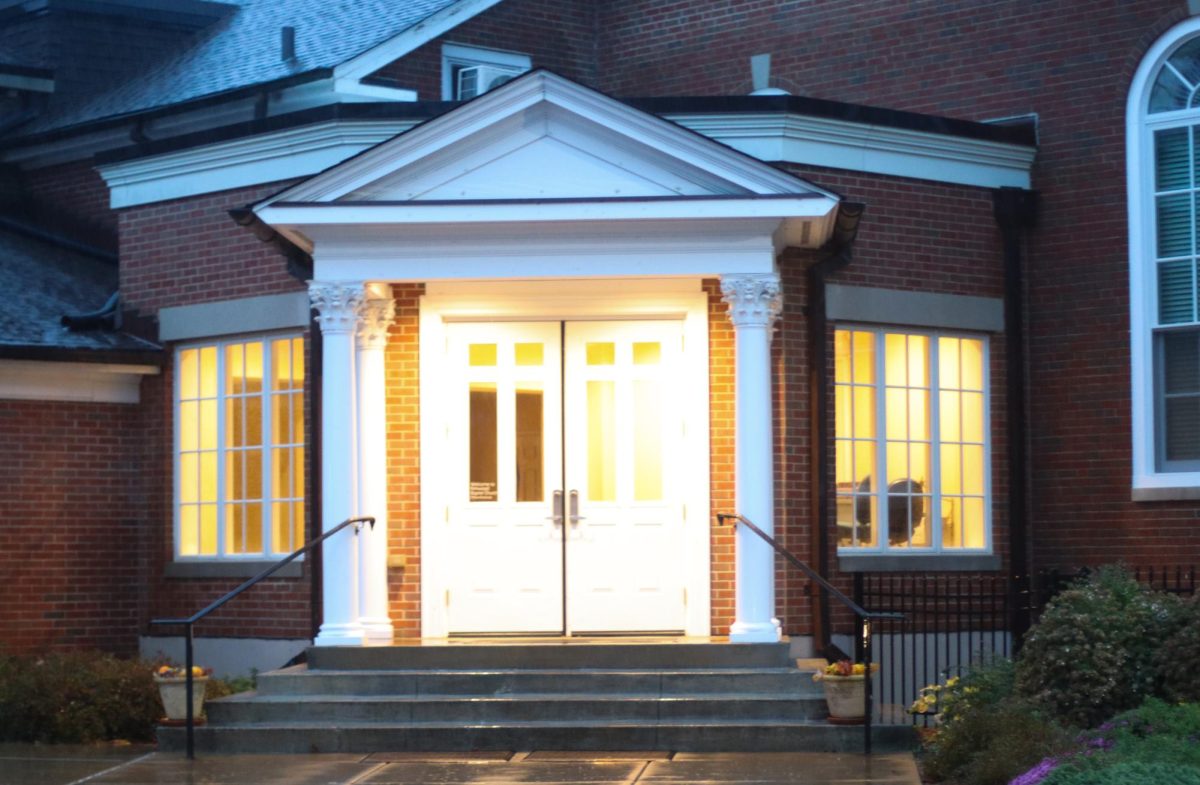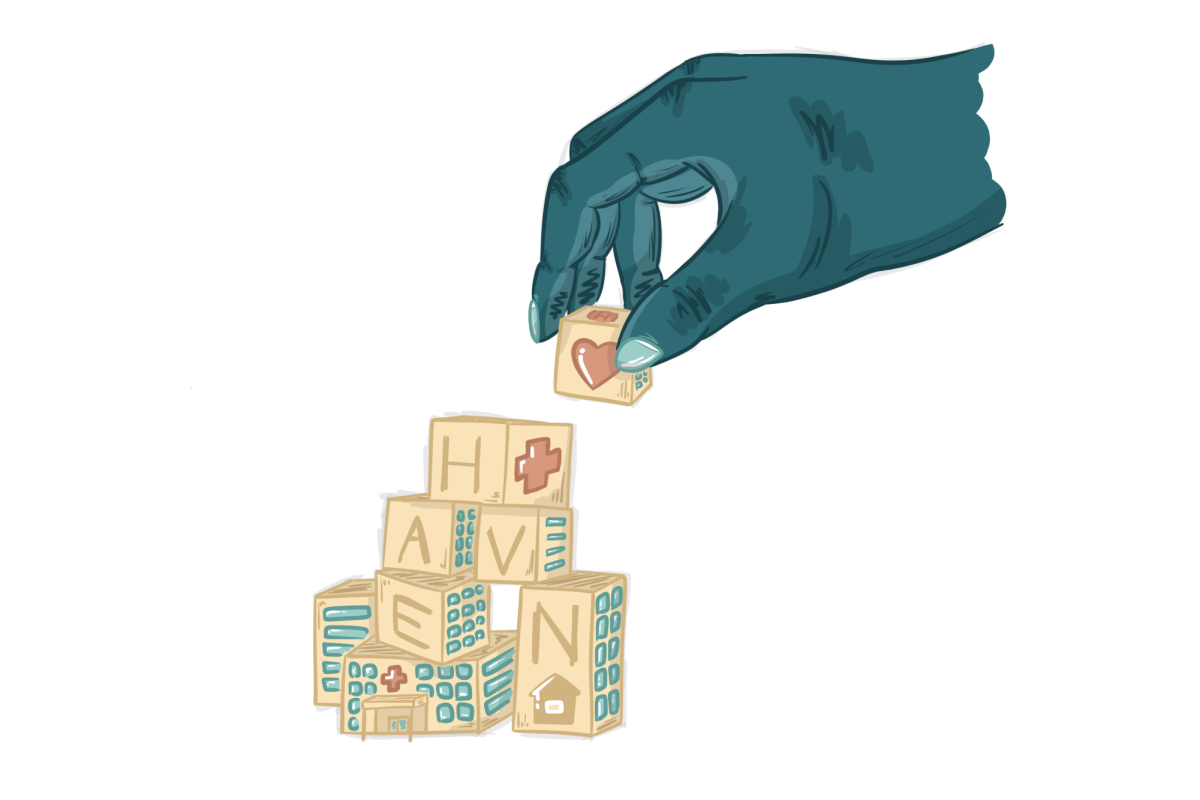 While most students cursed the snow that fell during spring break like it was dandruff, Abdulhamid (Abdul for short) Hassan rejoiced like it was money. Wonder surged through his body as he beheld the strange slushy substance in his hand. A bracelet dangling from one of these hands helps explain Hassan’s wonder. Adorned with beads of red, black and green, the bracelet represents the flag of Kenya, where Hassan, sophomore, emigrated from at the beginning of second semester. Although snow never fell during his time in Kenya or Ethopia, his birthplace and where he lived for a time, Hassan had experienced the wondrous white powder once before.
While most students cursed the snow that fell during spring break like it was dandruff, Abdulhamid (Abdul for short) Hassan rejoiced like it was money. Wonder surged through his body as he beheld the strange slushy substance in his hand. A bracelet dangling from one of these hands helps explain Hassan’s wonder. Adorned with beads of red, black and green, the bracelet represents the flag of Kenya, where Hassan, sophomore, emigrated from at the beginning of second semester. Although snow never fell during his time in Kenya or Ethopia, his birthplace and where he lived for a time, Hassan had experienced the wondrous white powder once before.
“When I got off the plane in New York [to St. Louis], it was snowing,” Hassan said. “It felt like my chest was exploding, it was so cold.”
The rest of John F. Kennedy airport made a similar impression on Hassan. Amazed at the cavernous airport, going terminal to terminal seemed strange as navigating the rest of America.
“In Africa, you travel from country to country,” Hassan said, “but in America, you travel from city to city.”
America’s astronomical size astounded another KHS newcomer. Federico Mambelli flew to Kirkwood from Italy for his senior year. Upon arrival, he found himself in need of a new set of wheels.
“You need a car here,” Mambelli said. “Everything is more spread out. In Italy, you just walk everywhere.”
Once they were acclimated to America’s size, Hassan and Mambelli faced the challenge of adjusting to the alien school life in America. Both came from schools very different than KHS.
Instead of choosing a school, Hassan took a national test during eighth grade in Kenya that determined the caliber of education he would receive and school he would go to.
“You don’t know what’s on the test,” Hassan said. “It could be anything you have learned up to that point, and there are no multiple choice questions on the whole thing. You either know it or you don’t.”
Hassan’s high score on the exam put him into one of Kenya’s better schools, very different from KHS: an all-male boarding school devoid of cell phones, iPods, and personal computers. School began at 4:30 a.m. and lasted until 5 p.m., followed by dinner and then “assignment time” (their word for homework, since school was their home.) until bed at 9:30 p.m. Hassan’s 11 course schedule his first two years at the school also added to the burden, something he does not miss in America.
“I like how [the subjects] are compartmentalized here,” Hassan said. “It was tough to study chemistry, physics, and biology at the same time.”
Mambelli’s school in Italy also differed from KHS. Unlike the Spartanesque feel of Hassan’s school, Mambelli’s had an Athenian touch to it. School lasted only until 1 p.m., and Mambelli never moved a muscle as teachers dashed from room to room.
“I liked it,” Mambelli said. “I was able to grow really close to my classmates. Here, it was tough finding my way around this big school. I liked seeing all the different faces, though.”
For both, those high schools will remain in the past. Mambelli returns to Italy at the end of May and will start college in the fall. The date for Hassan’s homecoming, however, has yet to be marked. His parents moved to America seven years before him in order to gain citizenship, leaving him and his two brothers in the care of his grandma and uncle while they saved money for a family reunion. Hassan hopes to reunite with those he left behind one day.
“Home is just the best place,” Hassan said. “I miss my friends and grandma, and being able to speak the (43 different) languages.”
Despite the challenges both students have faced in America, their teachers have heaped praise on their culture-changing abilities.
“Everything is a new experience for [Hassan], but he adjusts real well,” Rebecca Koeller, Hassan’s English as a Second Language teacher, said. “Most immigrants get frustrated, but I see him doing real well.”
Mambelli has adjusted well to America during his short time in the country, and can now teach lessons to his own teachers.
“[Mambelli] is a young man who is easy to engage in conversation,” Santee Nixon, Mambelli’s business teacher, said. “I’ve learned more from him than he’s learned from me.”
Mambelli and Hassan have also made students teachers at KHS aware of America’s similarity to other countries. Mambelli and Hassan know many of the cultural staples of America. American movies, sports (Hassan watched World Wrestling Entertainment in Kenya), and music have all infiltrated the borders of their respective countries. In fact, thanks to Internet piracy, Hassan sees many American movies before Americans do. Piracy is one of the reasons he feels Kenya is more modern than many Americans care to believe.
“When I tell people I’m from Kenya, they think I’m from a forest, but it is much more advanced,” Hassan said. “Everything is just larger in America.”








